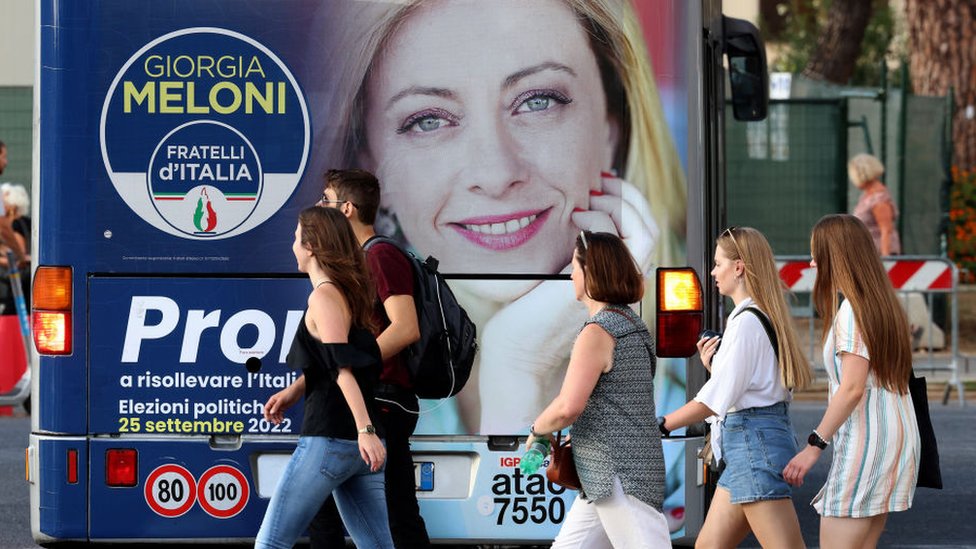Italy votes as far-right Meloni looks for victory

In an election that is being widely watched around Europe, Italians will decide whether to elect their most right-wing administration since World War Two. Giorgia Meloni, the leader of the far-right Brothers of Italy party, is attempting to unite two other right-leaning parties in order to become the nation’s first female prime minister.
She dislikes being associated with Italy’s fascist past despite having softened her image. Up to 23:00, nearly 51 million Italians may use their right to vote (21:00 GMT). Long lines were observed at some polling places in Rome by lunchtime, when turnout had reached over 19%, a level similar to that of the previous election four years prior.
Enrico Letta, the leader of the center-left, was Ms. Meloni’s main opponent. Matteo Salvini, a supporter of the far-right, voted in Milan. There are 4.7 million foreign voters and 2.6 million first-time voters. When the polls close, exit polls will be released, and the results will be available hours later.
One voter hailed her “strong character,” while another claimed she had voted to keep the extreme right out, in the southern Rome neighbourhood of Garbatella, where the Brothers of Italy leader grew up. Emma stated, “I don’t want to win; it’s not who I want to win.”
Giorgia Meloni has toned down her rhetoric towards Europe and supports Western sanctions against Russia.
But she continues to support the old fascist adage, “God, fatherland, and family,” which was popularised by Benito Mussolini.
A unity administration led by Mario Draghi, a well-liked former head of the European Central Bank, governed Italy for a year and a half. One of the few party leaders who steadfastly declined to participate was Giorgia Meloni.
The primary goal of the Draghi administration was to implement the reforms that were agreed upon as part of the EU’s eye-watering €200 billion (£178 billion) in grants and loans for post-Covid recovery. Meloni wants those measures to be reviewed in light of the energy crisis because by July the administration had disintegrated. Additionally, she has expressed a desire to “protect” Italy’s national interests within the EU. It seems sense that many European leaders are anxiously monitoring this vote.
Picture Courtesy: Google/images are subject to copyright
